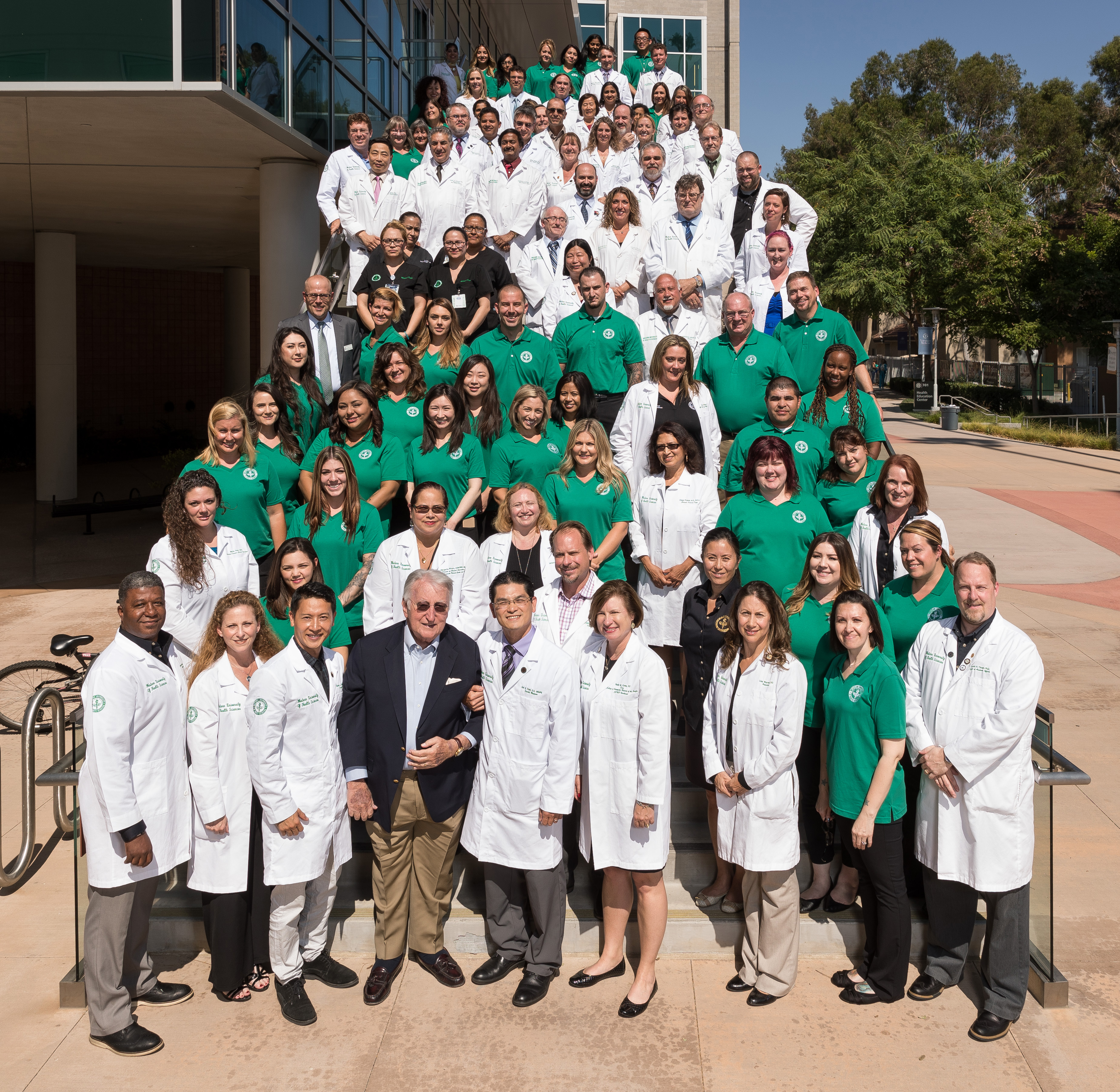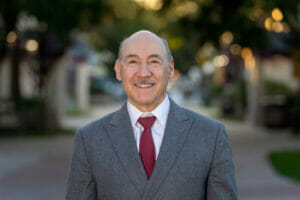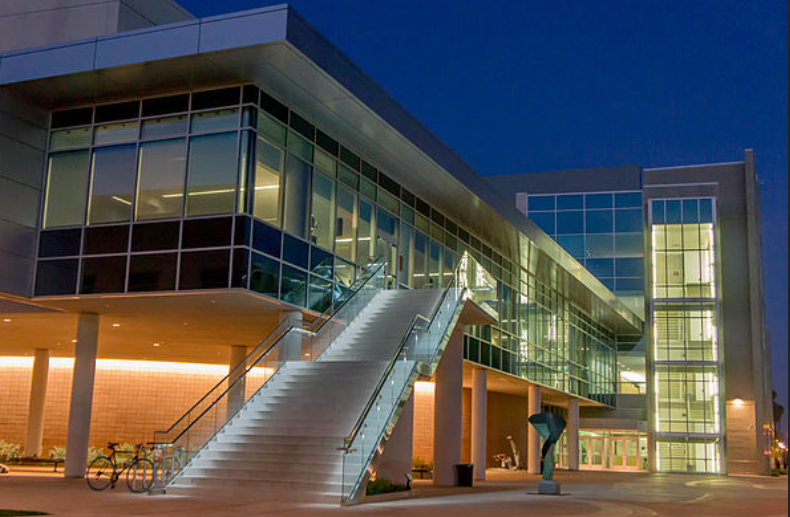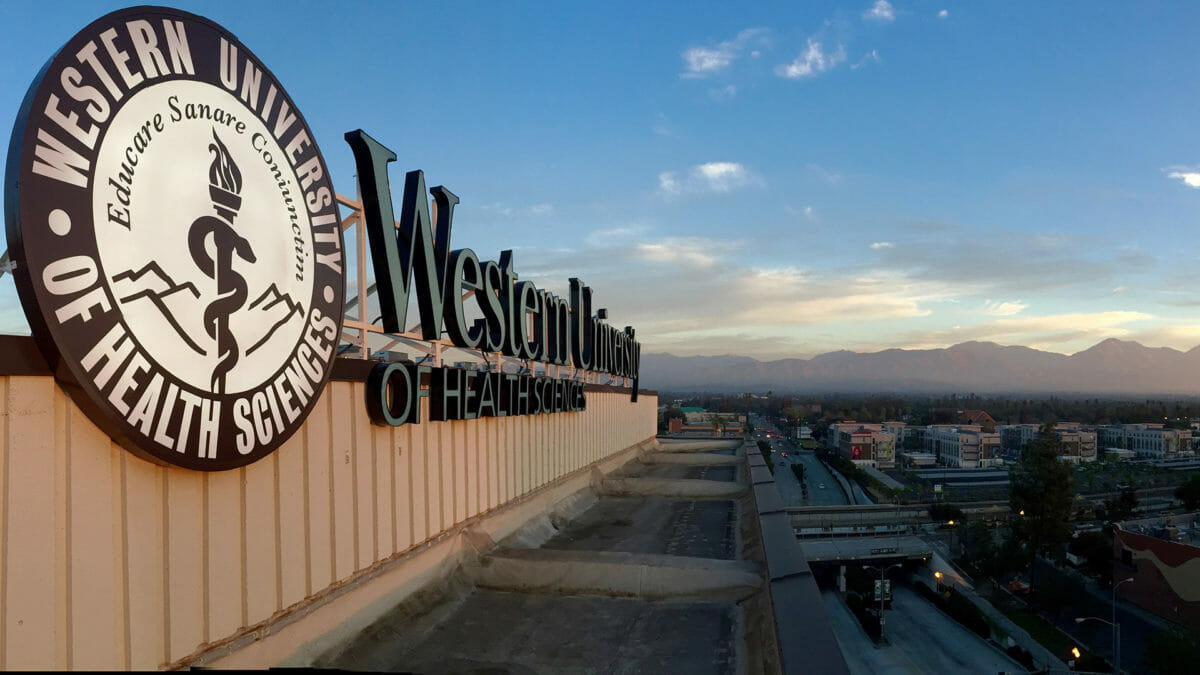Chair, Department of Family Medicine
- Position:
- Chair, Department of Family Medicine
- Specialty:
- Leadership, Osteopathic Medicine, Leadership – Department Chair, Osteopathic Manipulative Medicine, Neuromusculoskeletal Medicine/Osteopathic Medicine (NMM/OMM), Clinical Research, Preventive Medicine, Population Health , Family Medicine, DO – Doctor of Osteopathy, Primary Care, Graduate Medical Education, Medical School Teaching & Curriculum Development
- Location:
- Pomona, CA
Chair, Department of Family Medicine – WesternU COMP
Western University of Health Sciences College of Osteopathic Medicine of the Pacific (COMP) is conducting a nationwide search for an experienced physician/leader of osteopathic medicine to serve as the next Chair, Department of Family Medicine. The incoming Chair will lead a dynamic multi-campus faculty and staff dedicated to the common goal of providing students with a strong foundation in clinical medicine using the guiding principles of Osteopathic Medicine.
The ideal candidate for this leadership role is a Doctor of Osteopathic Medicine (DO) with current AOA or ABMS board certification, demonstrating substantial teaching experience, proven academic accomplishments and established program-building expertise.
Required Qualifications
Doctor of Osteopathic Medicine (DO) degree.
Current AOA or ABMS board certification in Family Medicine/Family Practice
Minimum of 5 years of experience in teaching and academic leadership in a medical education setting
Unrestricted California licensure (or eligibility for California licensure)
Unrestricted Drug Enforcement Agency (DEA) certificate.
Position Specifics
Position Specifics
The incoming Chair will represent and lead COMP in every aspect relating to Family Medicine, requiring key involvement both external and internal to COMP. Externally, the incoming Chair of Family Medicine will participate in discussions with peer department chairs at other osteopathic colleges and medicals schools and professional organizations to foster and promote a strong working relationship with COMP. Internally, the Chair has many specific duties and responsibilities, including
- Responsible to maintain intellectual integrity and to strive for academic excellence in teaching.
- Integrates family medicine and its principles into the appropriate segments of the four-year academic curriculum at COMP.
- Provides leadership and collaboration to foster an integrated approach to osteopathic medical education between COMP’s academic departments
- Supports faculty development within the college and department
- Coordinates and develops an integrated approach to osteopathic medical education between all of the clinicians on WesternU’s campus.
- Performs and coordinates the on-site evaluation of family practice rotations (clerkships) and submits written evaluation reports to the Vice Dean for Academic Affairs
- Develops and coordinates the curriculum for OMS III and IV students
- Conducts himself/herself in a professional manner so as to bring credit to the key role model position in family medicine for our medical and students
- Serves as faculty lead for the Family Medicine core and elective rotations
- Continues to develop and refine the goals and objectives for family medicine rotations for the OMS III and OMS IV students
- Appoints appropriate committees to function within the Department of Family Medicine and Chair departmental meetings
- Clinical teaching and precepting of students
- Development of federal/state grants for the advancement of the Department of Family Medicine and its educational role at COMP.
- Performs other duties and projects as assigned by the Dean of Osteopathic Medicine.

Department of Family Medicine
The specialty of family medicine is nearly limitless in the patient populations that we care for, the venues in which we deliver that care, and the range of patient issues, from preventative care to solving diagnostic mysteries to disease management to procedural medicine. Family physicians are asked to do it all and do it well. Our mission is to provide students with a strong foundation in clinical medicine to prepare them well to care for their future patients using the guiding principles of osteopathic medicine in a way that values the whole person and the important intersection between body, mind, and spirit. We strive to meet our mission while making certain that the students maintain their own health as they navigate through their medical education journey.
Curriculum
The faculty in the Department of Family Medicine at COMP is tasked with teaching the Clinical Medicine and Reasoning curriculum which is embedded in each block of the pre-clinical curriculum and spans all systems of the human body. We like to refer to this as the “How to be a Great Doctor” course. This requires students to continually build upon and draw from gained knowledge in both clinical skills and basic sciences, to provide the best care for patients. During the pre-clinical years (years 1 and 2), students learn processes in support of the organizational scaffolding necessary to gather the essential information (historical and physical) during a patient encounter using the language of medicine and critical thinking skills to develop a path forward for each individual patient. Students then use these skills in clinical reasoning as to transition into clinical years (years 3 and 4) where they learn from the best teachers… patients! During all four years of the undergraduate medical education, students engage with the faculty of the Department of Family Medicine in a structured curriculum.
Western University College of Osteopathic Medicine of the Pacific (COMP)
COMP remains committed to ushering a new generation of osteopathic physicians who serve their patients with purpose, passion, and proficiency. The faculty and staff at both campuses inspire a shared vision of a student-centered, inter-professional approach to learning with a meaningful emphasis on humanistic health care. We strive to model the way for our students and alumni by being leaders in our profession, our communities, and in the realm of academia. Today’s advanced technology and the ever-growing body of medical knowledge continue to move COMP and COMP-Northwest into a new era of medicine. A vigorous desire to heal combined with their strong medical education makes our students stand apart from the rest. Our students thrive in a culture of patient-focused care because they practice on a foundation of professionalism, benevolence, and respect. They understand that while they practice the art of medicine with their heads, they must never forget to use their hearts. 
COMP History
COMP was established in 1977 as a direct and important response to a critical shortage of primary care physicians in the western United States. Philip Pumerantz, PhD, accepted the invitation of the college’s board of directors to become the founding president in September of 1977. In January 1978, COMP received pre-accreditation status from the American Osteopathic Association. Provisional accreditation status was achieved in July of 1978 and full accreditation in February 1982. In August of 1996, in order to better reflect its stature, COMP was restructured into a university with a new name: Western University of Health Sciences.
COMP-Northwest
In 2011, the University ventured north to Lebanon, OR and opened the new College of Osteopathic Medicine of the Pacific-Northwest, the first medical college constructed in 100 years in Oregon. This campus known as COMP-Northwest (COMP-NW) welcomed its inaugural class of 107 osteopathic medical students now has an enrollment of about 400 students.
The COMP-NW campus addresses the health care needs of residents throughout the Northwest. We will achieve our goal of educating osteopathic physicians from the Northwest, in the Northwest, for the Northwest by attracting students with outstanding personal and academic qualities, and teaching them to recognize and develop the knowledge, behaviors, and skills necessary for the effective and compassionate practice of medicine.
COMP-NW Expansion
WesternU will recieve a donation of $22.5M from FamilyCare, Inc., a non-profit organization serving over 130,000 Medicare and Medicaid members and the only osteopathic HMO in the United States. Dr. Jeff Heatherington, President of FamilyCare and CEO of The Heathering Foundation for Innovation and Education in Health Care, will donate 150 acres to create a new and expanded campus for COMP-NW and launch a behavioral health college to provide equally needed and critical health services.
WesternU Welcomes New President
Western University welcomed Dr. Farias-Eisner as the third permanent president in its nearly 45-year history on March 1, 2022. Dr. Farias-Eisner joins WesternU most recently from Creighton University in Omaha, Nebraska, where he was the Director of the Henry Lynch Comprehensive Cancer Research Center and Chief Academic Officer in the School of Medicine. He was also Associate Dean of Women’s Health and Professor and Chairman of the Department of Obstetrics and Gynecology at the School of Medicine at Creighton.

“I am humbled and honored to be the next president of WesternU,” Dr. Farias-Eisner said. “WesternU’s mission of producing health care professionals in a humanistic tradition instantly drew me to the institution. Not only is WesternU guided by core values that deeply align with mine, but my entire career has been about advocating for equity, inclusion, respect, empathy and trust. I am excited to begin my journey with our campus community and engage with WesternU’s world-class students, faculty, and staff. And I am equally looking forward to connecting and building relationships with our communities in Lebanon, Pomona, and beyond.”
Location – Pomona, CA
Pomona, CA is a city of approximately 150,000 people located in the Pomona Valley of California, approximately 30 miles east of Los Angeles. The climate is Mediterranean with a large amount of year-round sunshine. The area is known for frequent city-wide activities including farmers markets, hikes/trails, classic home tours, etc. While the overall cost of living in Pomona is nearly 12% lower and housing costs are a substantial 28% lower than the California average.







